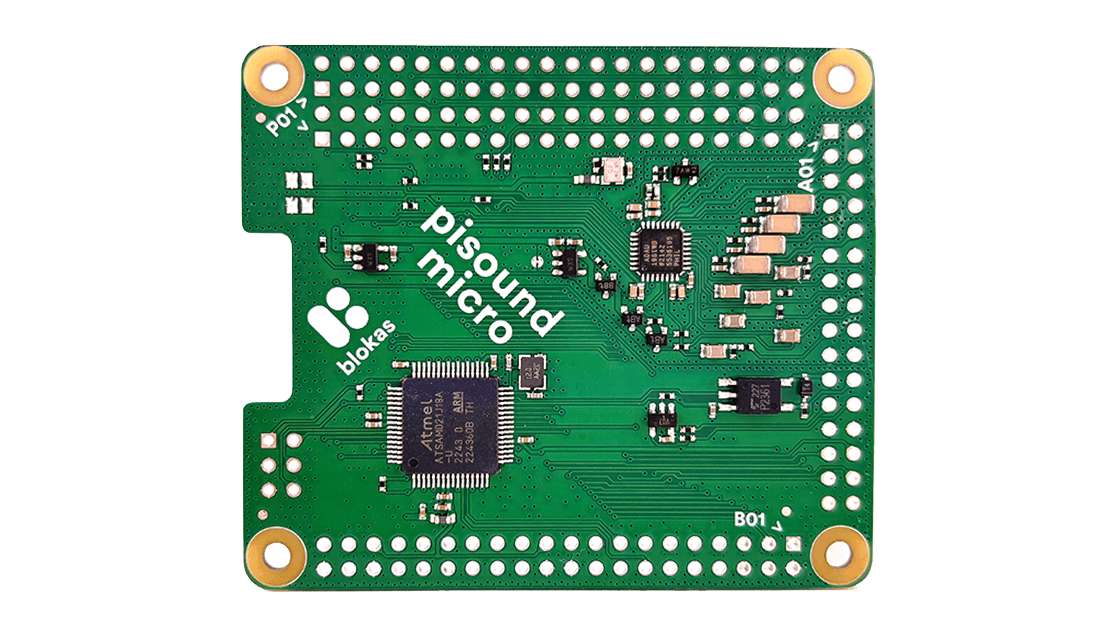Pisound Micro – All-in-One Hat for Your Audio Hardware Projects
Pisound Micro is a low-latency sound card, MIDI interface, and I/O expansion board optimized for Raspberry Pi.
Join Beta ProgramMeet Pisound Micro!
A new addition to our Pisound sound card line - Pisound Micro is a low-latency sound card, MIDI interface, and I/O expansion board optimized for Raspberry Pi and similar Single Board Computers*.
This sound card offers low latency, high-quality stereo input and output, a dedicated 1x1 MIDI interface, and an additional 37 GPIOs. It seamlessly integrates into your hardware projects while preserving your SBC's GPIO space.
Plus, the card does not come with pre-soldered connectors, allowing for complete design flexibility.
Key Features
Software Tools

Specs
Pisound Micro is built for makers. With low-latency performance, flexible GPIOs, and pristine sound, it's perfect for crafting custom instruments, effects, and interactive audio projects. See the full specifications here for a complete breakdown of its capabilities.
| Audio Parameters | Value |
|---|---|
| Audio Input | 1x Stereo Input (Balanced or Unbalanced) |
| Audio Output | 1x Stereo Output (Balanced or Unbalanced) with Separate Unbalanced Headphone Out |
| Sampling Rates | From 8kHz to 96kHz |
| Input & Output Resolution | 24bit |
| Signal-to-Noise Ratio | > 98dB |
| Total Harmonic Distortion | < 0.02% |
| Audio Loopback Latency | ~ 5ms |
| MIDI Parameters | Value |
|---|---|
| Input / Output Channels | 1x MIDI In, 1x MIDI Out |
| MIDI Loopback Latency | 1.4ms |
| MIDI Activity LEDs | Yes via GPIOs |
| GPIO Parameters | Value |
|---|---|
| Total Number of Extra GPIOs | 37 |
| Of Which Analog Pins (ADC) | 12 |
| Analog Pin Resolution | 10 bits (Value Range 0 - 1023) |
| GPIO Loopback Latency | 0.5ms |
| Other Parameters | Value |
|---|---|
| Current Draw | 25 ~ 35 mA @ 5.1V DC |
| Dimensions | 56mm x 65mm x 4mm |
| Weight | 13g |
Want to Know More?
Head straight to Pisound Micro documentation page or to our community forums. If you would like to contact us directly, please email us at hello@blokas.io!
Pisound Micro Forum Pisound Micro Docs